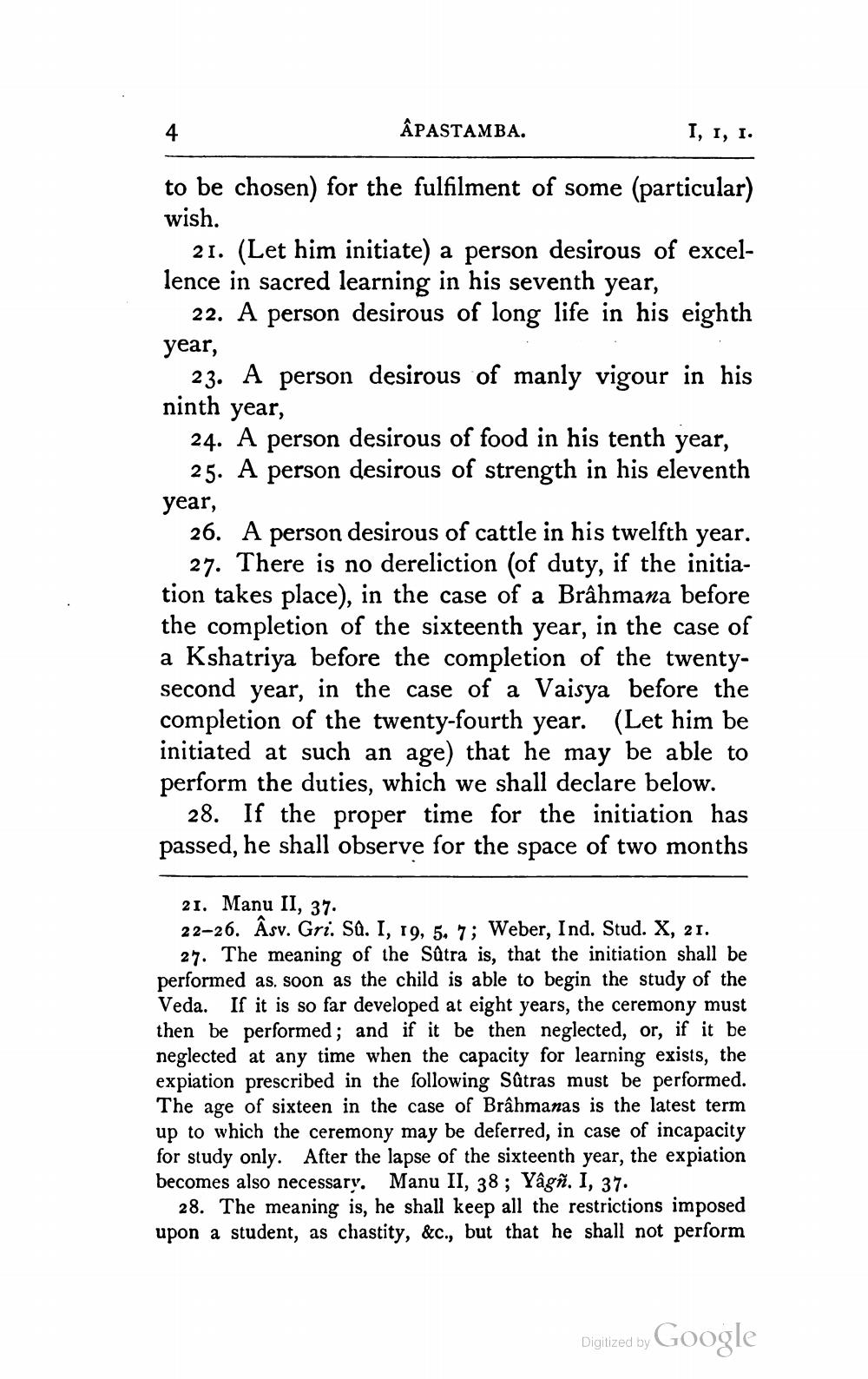________________
ÂPASTAMBA.
I, 1, 1.
to be chosen) for the fulfilment of some (particular) wish.
21. (Let him initiate) a person desirous of excellence in sacred learning in his seventh year,
22. A person desirous of long life in his eighth year,
23. A person desirous of manly vigour in his ninth year,
24. A person desirous of food in his tenth year,
25. A person desirous of strength in his eleventh year,
26. A person desirous of cattle in his twelfth year.
27. There is no dereliction (of duty, if the initiation takes place), in the case of a Brâhmana before the completion of the sixteenth year, in the case of a Kshatriya before the completion of the twentysecond year, in the case of a Vaisya before the completion of the twenty-fourth year. (Let him be initiated at such an age) that he may be able to perform the duties, which we shall declare below.
28. If the proper time for the initiation has passed, he shall observe for the space of two months
21. Manu II, 37. 22-26. Asv. Gri. Sū. I, 19, 5, 7; Weber, Ind. Stud. X, 21.
27. The meaning of the Sûtra is, that the initiation shall be performed as soon as the child is able to begin the study of the Veda. If it is so far developed at eight years, the ceremony must then be performed; and if it be then neglected, or, if it be neglected at any time when the capacity for learning exists, the expiation prescribed in the following Satras must be performed. The age of sixteen in the case of Brahmanas is the latest term up to which the ceremony may be deferred, in case of incapacity for study only. After the lapse of the sixteenth year, the expiation becomes also necessary. Manu II, 38; Yâgñ. I, 37.
28. The meaning is, he shall keep all the restrictions imposed upon a student, as chastity, &c., but that he shall not perform
Digitized by
Digjized by Google




